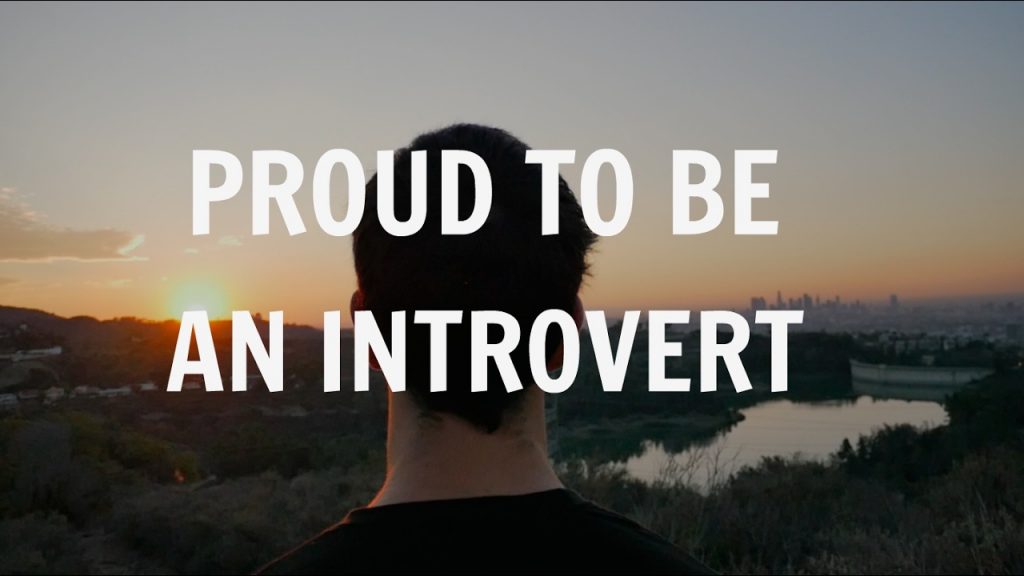10 Myths About Introverts Debunked

What pops up in your head when you hear the word “introvert”? Do you imagine a librarian, a writer, or the person constantly doing everything behind the scenes? What if I told you that introverts have also been some of our world’s greatest social activists, CEOs, and musicians? There are a lot of common misconceptions formed by the public about introverts based on our culture’s superficial portrayal of them. Here are 10 myths about introverts that have been debunked:

1. Introverts don’t like to talk.
This is complete bogus. Introverts do like to talk, but it has to be meaningful. Otherwise, exchanging words seems pointless. They don’t see the point in small talk and do not find it worth their time to engage in gossip or ongoing superficial conversations with content that lacks depth.
As an introvert, there’s nothing more that turns me off than having to take part in a dead-end conversation. I have to know that it’s at least going somewhere. Otherwise, I’m mostly content with being silent.

2. All introverts are shy.
Shyness and introversion are two different things. Although there are introverts that are shy, there are also ones who aren’t. This can pertain to extroverts, too, as some can be shy at first before getting to know others better.
The person I’m dating is an introvert, but he’s definitely not shy. Depending on the social circumstance, I, myself, can be a shy introvert. Shyness is the sort of painful feeling one experiences when they’re afraid of being socially rejected. Introversion is the tendency to focus more on internal thoughts rather than the external world. And while shyness does cause one to focus on being in their heads, introversion can still exist without it.

3. Introverts don’t like to go out.
This is false. Introverts do like to go out. They only like staying out for a certain period of time before they have to head home to re-charge. This is because introverts take in information very quickly that it can be overwhelming for them if they have to do it for long increments. Constantly being exposed to an overstimulating environment can be too much that it takes a lot out of them.
I don’t mind going out from time to time to concerts if it means being able to see my favorite bands perform. I also don’t mind amusement parks or festivals. I just can’t be in those environments for too long before my body has decided it’s had too much stimulation for the day.

4. Introverts don’t like people.
This one actually makes me laugh, because it’s incredibly judgmental. We don’t hate the human race (although, sometimes we do have those days; seriously, who hasn’t occasionally given up on it?). Susan Cain, an introvert and author of Quiet, writes, “Love is necessary, gregariousness is optional.” Introverts value their few close loved ones. They care more about the quality of the relationships they have rather than the quantity of people in their lives.
I can only count the amount of true friends I have using one hand. I prefer it that way. The older I get, the more I realize that having one best friend over having many not-so-close ones makes a huge difference. What’s the point of friendship if you don’t have someone who you can spill your guts to?

5. Introverts can’t become leaders.
Although studies have shown that there are more extroverted leaders than introverted ones, that’s not to say there aren’t any. And it’s also not to say that extroverts make better leaders. Even though extroverts are naturally more assertive and enthusiastic that makes them more attractive to their followers, introverts are more inclined to really listen to their followers’ ideas and suggestions, rather than pushing their own beliefs onto them.
In the past, I’ve worked as a mentor leader with students. I noticed that the more I listened to their problems, the more trust was built between us. I allowed them to have a voice, and instead of directly telling them what to do, I provided options and let them make their own choices, all while reminding them about the consequences behind each of them.

6. Introverts are poor at networking.
While it’s been shown that extroverts have larger networks, knowing more people doesn’t necessarily mean more opportunities for jobs. Strong networking is more about the impression you make on the people around you and the connections you make with them. Since introverts value and understand that space is important, they aren’t overwhelming to work with, because they don’t impose their ideas on anyone. This shows others that they can be depended on all while keeping the drama low in professional settings.
I’ve noticed throughout my years of working in various settings that I tend to be the shoulder others can lean on. People often come to me with their problems and concerns. Not only does it help me form connections with others, but it gives us all the chance to be human. It helps my coworkers and I communicate with one another more effectively and allows us to get through even the toughest days together.

7. Introverts don’t know how to have fun.
This isn’t true. Dopamine, the neurotransmitter that is associated with excitement and sensation-seeking, is one that introverts’ brains are sensitive towards. Just because introverts are wired differently than extroverts does not mean they are deprived of new experiences altogether. Fun is super subjective. And just because introverts aren’t out partying all the time doesn’t mean they don’t replace that option with activities that are more fulfilling and relaxing to them.
I love going to the beach with a few of my close friends during sunset hours when it isn’t crowded. We often seek out places where we can have good conversations that takes away from the stress in our lives, allowing time to slow down. Laid back activities and good company will always be fun in my book.

8. All introverts dislike public speaking.
It’s often assumed that extroverts are the ones hogging up all the space when it comes to live performances and public speaking. And while there is usually more anxiety associated with getting up and talking in front of a large group of people for introverts, that’s not to say that introverts don’t take part in public speaking. It might take more time for introverts to desensitize themselves to it if they aren’t comfortable with it, but if their passions encourage them to step up to the plate and deliver speeches about what matters most to them, amazing things can happen.
I remember growing up, I absolutely hated doing class presentations. But the more I did it, the more I got better at it. There was one particular girl in my class during our senior year in high school who watched me progress and made a comment about it when feedback was given to me. I didn’t think anyone noticed (I didn’t think anyone even cared), and I didn’t necessarily notice how far I’ve come until she pointed it out. The thing about public speaking is that it’s not just about going up and delivering a speech. It’s a way for the audience to see something that the speaker might have missed. And when it’s communicated between both sides, understanding is created.

9. Introverts make poor salespeople.
People often think that salespeople are outgoing, bubbly, and assertive extroverts. But, introverts make excellent salespeople because instead of being forceful and demanding that customers buy their products, they take a more sincere approach and listen to what customers look for. This can help customers feel like they’re on the same page as introverted salespeople, rather than feeling attacked and overwhelmed by someone who’s only concerned with dominating their next move.
I’ve worked in retail for 2 ½ years. I noticed that I help make more sales when I listen and provide options, telling customers about the benefits of each one, but allowing space and time for them to make up their minds instead of putting pressure on them. The thing about consumerism isn’t necessarily about what is being bought. Sometimes, it’s merely about presenting the power for someone else to make a choice and allowing the consumer to believe that their choice is enough that impacts their life for the better. It’s all about fostering the idea that we’re in control of our own destiny and happiness.

10. Introverts can become extroverts with enough practice.
This one tends to be the public’s favorite that it’s actually heartbreaking, wrong, and downright insulting. Without introverts, we wouldn’t have some of the most amazing art, films, literature, scientific breakthroughs, and inventions that we have today. Introverts are essential. So, instead of trying to “fix” us like we’re broken, let us be. We’re vital to the human race.
Are you an introvert? Do you agree? Psych2Go would love to hear your thoughts! Leave a comment down below!
References:
King, C. (2008). 10 Myths About Introverts. Retrieved October 29, 2017.



[…] the scenes. Certainly not all introverts act this way, in fact, there are many misconceptions and myths about introverts and our ability to be social; however, we all do eventually reach our social limit. Here are the 10 […]
[…] is made up of introverts. Introversion is commonly misunderstood today with many stereotypes and myths surrounding it. Luckily, however, with the help of the ever-evolving fields of science and […]
[…] and can only take away what culture and media has projected about it —which can be incredibly misleading. One way to make the topic less foreign is by picking a frame of reference your audience is […]